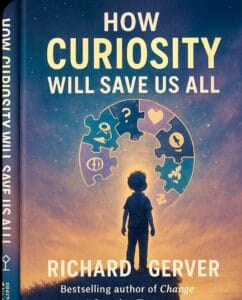It’s been a year since I took on the mantle of President of the School Library Association (SLA) . It was an unexpected and truly special honour to be invited to follow the celebrated author and illustrator, Chris Riddell, in this role.

When I accepted, my first priority was to raise the profile of the importance of school libraries in the education sector and at policy level. We have heard so much over the last two years about the digital divide (the gulf between those who have ready access to computers and the internet, and those who do not), and rightly so. Technology has never been more important for education during the restrictions and lockdowns we’ve faced in the UK during the pandemic.
However, it’s also become clear, that there is an analogue divide. I first heard this concept used by the brilliant education journalist J.L. Dutaut. The analogue divide notes that there is a gulf between those you have ready access to physical books and printed learning materials and those who do not.
In both cases, it is poorer, more disadvantaged communities who do not have access to these things. The long-term effects in education and for young peoples futures are hugely detrimental.
When I was a child, I had access to piles of books, old and new. My favourites being the Ladybird Histories and Enid Blyton’s Secret Seven. When I visited my grandparents, they too had shelves of books and it’s where I discovered my passion for art. I used to paw through my grandfather’s collection of books on artists like Hockney and catalogues from The Royal Academy Summer Exhibitions.
Looking back I now realise how fortunate I was to access something so important as books. When I became Headteacher of Grange School, one of the first things I did was to help create a fantastic library and appoint and train an amazing librarian. It had a profound impact on our students and their families.
At the start of this month, the National Literacy Trust published a major report into the provision of libraries in England’s primary schools, here are some of the findings:
- There is no government requirement for schools to have a library
- A quarter of disadvantaged primary schools in England do not have a library
- 40% of primary schools reported having no dedicated school library budget
- For the 1 in 11 children growing up without any books at home, school is often the first opportunity for children to discover the magic of reading
- Due to small budgets, some teachers buy books from charity shops out of their own pocket
- COVID-19 has affected the most disadvantaged pupils’ access to books
- Many existing school libraries lack quality inclusive and representative books
- Reading for pleasure is proven to positively impact young people’s mental wellbeing and academic attainment
Sobering to say the least. There is much work to be done to help the younger generations. One way you can do this is to urge any school you know – primary or secondary – to sign up to the School Library Association. You can even sign up if you are an international school!
It would be so good to see you as we fight to close the analogue divide!



